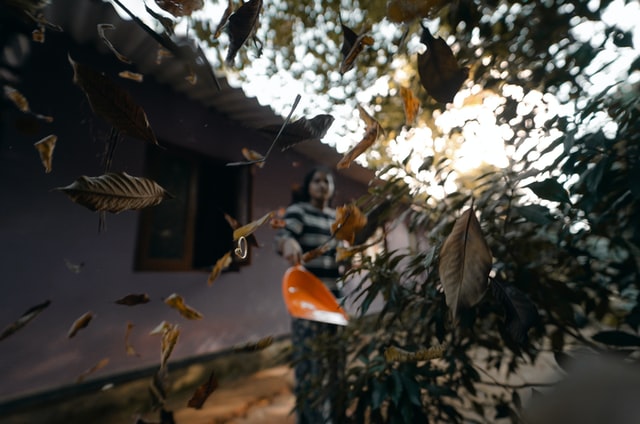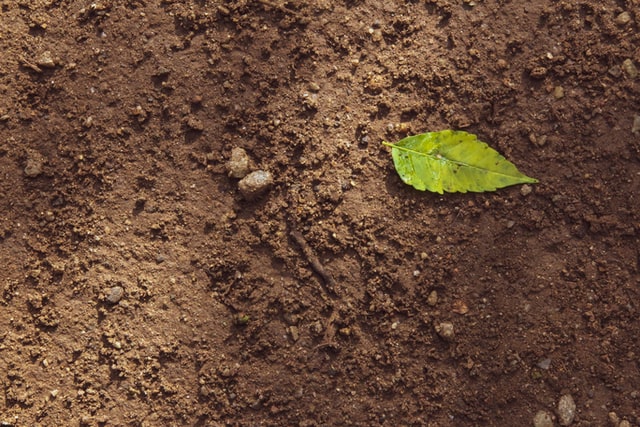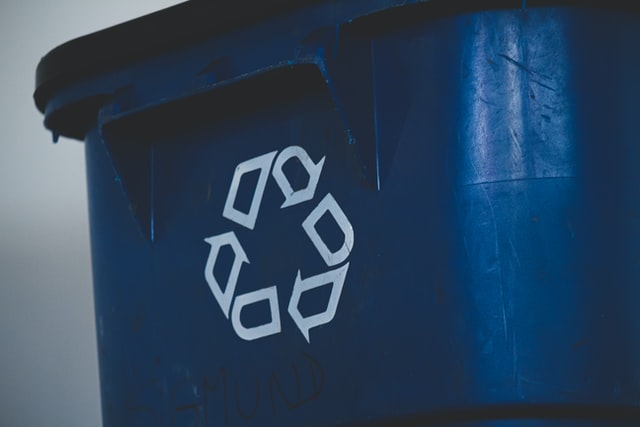GET RID & Dispose Of Garden Waste!
If you are one in eight Britons having a garden, we’re sure you know the struggle of getting rid of a garden mash area with piles of other rubble. There are numerous ways to part away with yard rubbish that you can’t either keep nor compost.
Keep in mind, it’s always best to hire a professional garden clean-up service and hassle not.

There are four different types of material found in gardens: soil, rocks, water, and organic matter. The latter comprises things like leaves, flowers, and grass clippings from mowing the yard.
In this guide from Gardening Services London, we go over your excess options with plants and vines before they become a problem.

Garden Waste 101
Examples are garden rubbish such as leaves, grass clippings, weeds, twigs, culinary waste, and other household waste.
Garden waste, also known as biological or green waste, is any organic waste that is easily composted.
Garden waste, for example, does not comprise carbon-rich components, and the majority of green waste contains high nitrogen levels.
Garden waste can be put to a variety of uses. Get straight on what you are dealing with before you dispose of it, also consider how it can benefit you in the long run.
Remember, we are bound by law not to harm the environment, create a hazard for humans and animals alike due to pest populations and your neighbours.
Enrich Garden Topsoil / Surface Soil

Topsoil is rich and fertile soil that contains all the necessary nutrients for your garden.
When you take care of its fertility by adding topsoil in gardening practices or simply recovering what has already been added from activities such as wash disposal, this will improve how healthy plants grow and their appearance due to an increase in nutrient levels found within them.
Industrial waste like coal dust can help improve the water holding capacity of topsoil and keep your plants in good condition.
Mixing these with garden or other organic compostable materials will result in an earthier looking more nutrient-rich landscape!
Natural Sewage Disposal
Discharging sewage liquids into the open is a problem, but there are creative technologies that can lessen the negative impact and prove a working solution.
For example, garden waste is often mixed with fresh water and other components of untreated wastewater so specialized enzymes and bacteria can remove some potential pollutants before being released back into the wild.
A Source Of Renewable Energy
Biodegraded garden waste can be converted into biofuel.

It helps decrease dependency on petroleum gas and produces minimal levels of greenhouse gases like methane compared with other sources such as coal-fired power plants that emit many more harmful chemicals than just CO2, ultimately fighting chronic energy waste households produce.
Care For Public Health
When determining what to do with garden rubbish, consider that green waste contributes significantly towards public and environmental health.
If you are a tenant rather than a homeowner, it may be worth consulting your tenancy agreement or your landlord on the best garden waste practices.
Though tenants are responsible for properly disposing of day-to-day household waste, if you’re in a larger HMO property it is your landlord’s responsibility to ensure that there are sufficient methods of waste disposal at the property and to inform you on how and when to deal with waste.
Classify & Part Green Waste
Green waste, such as grass clippings and weeds from the garden, is much cheaper to get rid of, compared to most other types of general rabble that without proper disposal could otherwise end up in a landfill or incinerated for energy production (which many people oppose).
“Not only does recycling these items helphelps reduce pollution levels, but it also keeps them out of landfills for centuries to decompose,” comment experts Quick Wasters. “Don’t think something labelled “recyclable” means you should put it all into one pile – if there’s any doubt about what goes with which category, then separate by type instead so nothing will get overlooked,” experts add.
Tools & Supplies

Now that you’ve decided to clean up the mess in your garden, let’s have a look at some handy tools you might need.
- Gloves;
- Garden rakes;
- Leaf Blowers;
- Broom;
- Dustpan;
- Dustbins;
- Weed Eater;
- Spades and Hand Trowels;
- Pruning Shears and Loppers;
- Lawn Mowers;
- Rubbish picker.
How to Get Rid of Garden Waste? Tips:
The disposal of yard rubbish requires thoughtful planning, and before performing waste management work, you must wear adequate safety gear.
Furthermore, there are other options available for your garden’s waste disposal needs:
Backyard Composting
It doesn’t matter if you’re new at this or an expert; there are a few simple points that everyone should know about composting and how it can benefit plant life health!
Step 1: Choose A Compost Bin
There are two ways to deal with your waste:
- Open pile.
- Bin;
- Tumblers.
We recommend using bins rather than the former, since they keep both you and your pets away from germs. It’s cleaner (no puppies!). There isn’t any danger that fire will occur when these refuse containers catch on something; flammable like paper towels, for instance!
Step 2: Select Location Wisely
A level, well-drained and sunny area of bare soil is ideal for composting. You must select the location so that fresh organics can be easily introduced and removed when done.
It would also help if there were some soil at the bottom of your container before placing to add microorganisms into the mix, which breaks down organic material further by ingesting smaller organisms found within our gardens such as earthworms etc.
Step 3: Bring Together The Right Ingredients
In addition to outdoor debris, you can put a plastic dustbin or kitchen caddy in your kitchen to store organic kitchen waste.
Step 4: Layer Waste
A single layer of twigs and leaves will not produce sufficient compost because it lacks adequate drainage.
To make sure your pile is aerobic,
- Start with this organic material before adding other items like straw or cardboard boxes from around the house!
- When mixing different types in 50/50 proportions (e.g., greenish-brown), remember that you don’t need to add anything else for balance,
- However, if one type stands out as more abundant than others, then add them at a lower level until everything has been mixed well enough, so there are no noticeable differences between layers.
- A nutrient-rich environment requires carbon dioxide gas, which encourages organisms to proliferate without overpopulating too much.
If you’re sure what the green and brown components are, here’s a quick rundown.
| Greens: | Browns: |
| Flowers | Grass clippings / Dried leaves |
| Vegetables | Coffee filter |
| Fruit peels | Bark |
| Scraps | Straw |
| Eggshells | Napkins / paper towels |
| Coffee grounds | Brown paper bags |
| Teabags | Pieces of cardboard / Newspaper |
| Sawdust | |
| Evergreen needles | |
| Paper egg cartons |
Not all garden debris can decompose.
Do not put the following in your compost bin:
- Charcoal;
- Cooked food;
- Dairy products;
- Pet waste;
- Toxic materials;
- Chemical logs.
Step 5: Hold Patience
Composting can be a great way to reduce waste and cultivate healthy plants, but it takes time. To speed up the process, you should continue adding material while maintaining moisture levels with water or other liquids as needed to keep your pile going strong!
Step 6: Gather Compost
The finished compost manure will be black, crumbly, and smell earthy. Once harvested, it should have a dry consistency with no wet spots left from water seeping into the pile during production – perfect!
Turn Wood Waste to Mulch
Unlike compost, mulch can serve as a blanket that covers and protects your crops, worms, and soil as a whole.
Use Worm Bins
Mind that worms degrade only food waste and green matter.

To dispose of your leftover meals, place them in an enclosure near where they were prepared, so they can continue to decompose naturally instead of going into a landfill or generating methane gas that could make climate change worse than ever before. It makes sense, right?
Be sure to keep it neither too hot nor cold for optimal conditions.
Bonfires, Incinerators & Using Wood Ash

It comes as a surprise to many, but using wood ash in the garden comes with quite a few benefits. It not only helps with pests, but it balances and nourishes chemical reactions.
Garden debris is excellent for burning in an incinerator because it’s safe, clean, and burns hotter than a bonfire. Garden cuttings like weeds or lawn trimmings can also be put on fire to make them more effective when used as fuel at a higher temperature without producing too much smoke that would bother you, neighbours.
Reuse, Reduce, Recycle

The best option for garden waste is not disposal, but rather reuse and repurpose when recycling. Twigs can be used creatively in wreaths ornaments, while branches make beautiful decorations when incorporated into other items like brick-like structures that cost less than new materials would!
For Huge Piles, Hire a Skip Bin
Though not cheap, it is one of the simplest and fastest ways to manage yard waste.
Furthermore, if you rent a huge skip bin, you are not limited to the amount of rubbish you may dispose of. According to the provider’s policy, you will have set days to fill the bin. Following that, the removal professionals will take the bin and dispose of the rubbish in a secure location.
Finally, you must take care to dispose of only waste that the company has approved.
Local Landfill & Recycling Centres
Some people rather take junk to the local landfill or leave it in their backyard or front lawn until collection day. All you do is collect your rabble and throw it in a properly disposed of and in a bag.
If you do not have a suitable vehicle for carrying rubbish, organise transportation arrangements. If you don’t have a trailer or pickup, you’ll have to pay for transportation. This strategy is advantageous for those who can dispose of garden debris or live near a recycling facility.
You can evade the hassle and expense of hiring a truck for your waste by simply taking it to any nearby recycling centre. All you need are non-decomposable bags, which will keep stray items from getting mixed in with other rubbish destined for landfills or incinerators.
“This way is far less expensive and more environmentally friendly, since those who do not recycle their waste expose themselves to health risks such as groundwater contamination due to dioxin exposure when burning plastics,” comments Rubbish Begone.
Green Recycling Bins
Garden waste is the bane of any gardener, and since most of us have limited space in the garden, we are forced to find creative ways to manage this problem.
One way that has become popular over recent years would be green recycling bins provided by local authorities where all your unwanted material can go once you put it inside during collection day.
You Can Sell Logs
Despite the necessity for smokeless fuel in many areas of the country, many people use wood-burning fireplaces or stoves.
So, if you have a tree that has been cropped or cut down, it is worth asking a tree expert to cut it into logs and in front of your house.
Getting Rid Of Garden Waste
Remarks,
In summary, it is essential to dispose of garden waste not to harm the environment. If you have any questions about how to do this, don’t hesitate to reach out! We’re happy to help you find a solution for your yard’s needs.
Learn more about the Gardening Services London Company and contact us today.
